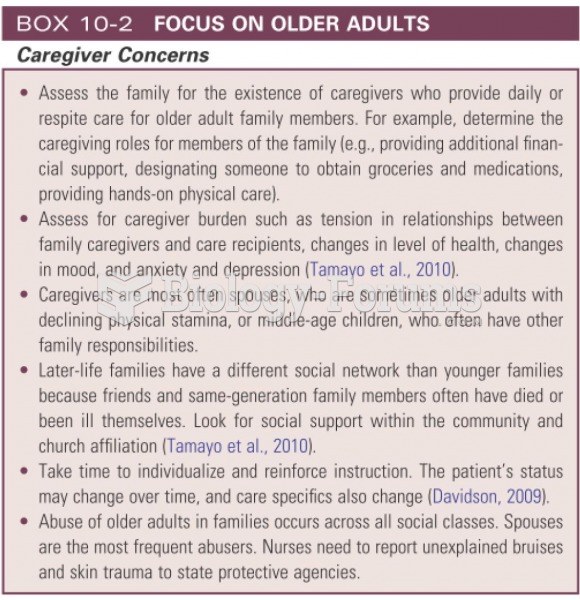|
|
|
A serious new warning has been established for pregnant women against taking ACE inhibitors during pregnancy. In the study, the risk of major birth defects in children whose mothers took ACE inhibitors during the first trimester was nearly three times higher than in children whose mothers didn't take ACE inhibitors. Physicians can prescribe alternative medications for pregnant women who have symptoms of high blood pressure.
It is difficult to obtain enough calcium without consuming milk or other dairy foods.
Human stomach acid is strong enough to dissolve small pieces of metal such as razor blades or staples.
It is widely believed that giving a daily oral dose of aspirin to heart attack patients improves their chances of survival because the aspirin blocks the formation of new blood clots.
Bacteria have flourished on the earth for over three billion years. They were the first life forms on the planet.






